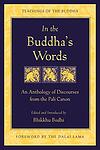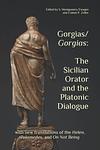The Greatest "Ancient Literature, Nonfiction" Books of All Time
Click to learn how this list is calculated.
This list represents a comprehensive and trusted collection of the greatest books. Developed through a specialized algorithm, it brings together 305 'best of' book lists to form a definitive guide to the world's most acclaimed books. For those interested in how these books are chosen, additional details can be found on the rankings page.
Genres
Ancient Literature refers to the body of written works produced during the earliest periods of human history, typically up until the fall of the Roman Empire in the 5th century AD. This category encompasses a diverse array of texts, including religious scriptures, epic poetry, philosophical treatises, historical accounts, and dramatic plays, originating from various civilizations such as the Sumerians, Egyptians, Greeks, Romans, Chinese, and Indians, among others. Notable works within this genre include the "Epic of Gilgamesh," Homer's "Iliad" and "Odyssey," the plays of Sophocles and Euripides, the philosophical writings of Plato and Aristotle, the "Mahabharata" and "Ramayana" from India, and the foundational texts of Confucianism and Taoism in China. Ancient literature provides invaluable insights into the thoughts, beliefs, and cultural practices of early societies, and continues to influence modern storytelling, philosophy, and ethics.
Countries
Date Range
Reading Statistics
Click the button below to see how many of these books you've read!
Download
If you're interested in downloading this list as a CSV file for use in a spreadsheet application, you can easily do so by clicking the button below. Please note that to ensure a manageable file size and faster download, the CSV will include details for only the first 500 books.
Download-
51. On The Gods by Marcus Tullius Cicero
The book is a philosophical treatise that explores ancient theological concepts and the nature of the gods, presenting a critical examination of various religious beliefs and practices of the time. The author, a Roman statesman and scholar, engages in a series of dialogues that delve into the existence and attributes of the divine, contrasting the Epicurean view of detached gods with the Stoic belief in a providential order. Through rigorous argumentation and eloquent rhetoric, the work seeks to understand the role of the gods in human life and the universe, while also reflecting on the implications of piety, fate, and the pursuit of happiness within the context of Roman religion and philosophy.
The 7168th Greatest Book of All Time -
52. Physics by Aristotle
"Physics" is a foundational text in the field of natural philosophy that explores the nature of the physical world and the principles underlying its behavior. The work delves into concepts such as change, causality, motion, and the infinite, providing a comprehensive framework for understanding the material universe. Through logical reasoning and empirical observation, the text examines the causes and principles of natural phenomena, offering insights into the dynamics of time, space, and matter. This treatise lays the groundwork for subsequent scientific inquiry and philosophical thought, influencing the development of Western science and philosophy.
The 8235th Greatest Book of All Time -
53. Allegorical Expositions of the Holy Laws by Philo of Alexandria
This book is a comprehensive examination of the Jewish laws as interpreted through the lens of Hellenistic philosophy. The author uses allegory to explain the significance and deeper meanings behind these laws, drawing on both Jewish and Greek philosophical traditions. The text serves as an exploration of morality, ethics, and religious observance, offering readers a unique perspective on Jewish law and its intersection with broader philosophical concepts.
The 8235th Greatest Book of All Time -
54. Dhammapada by Unknown
The Dhammapada is a revered text in Theravada Buddhism, containing 423 verses divided into 26 chapters. It provides a comprehensive guide to the Buddha's teachings, focusing on ethics, meditation, wisdom, and the path to nirvana. The verses are intended to be practical and applicable to everyday life, offering guidance on how to live a life of compassion, mindfulness, and wisdom. The text is considered one of the most accessible introductions to Buddhist philosophy and practice.
The 8235th Greatest Book of All Time -
55. Avesta by Zoroastrian scripture
"Avesta" is a sacred text of Zoroastrianism, an ancient Persian religion predating Islam. The book contains the teachings of Zoroaster (Zarathustra), the prophet and founder of Zoroastrianism. It includes hymns, rituals, and legal and ethical codes, all intended to guide followers in their spiritual journey. The text also provides insights into the history, culture, and philosophical concepts of the Zoroastrian faith, including the dualistic cosmology of good and evil and the role of free will.
The 8235th Greatest Book of All Time -
56. Outlines of Pyrrhonism by Sextus Empiricus
"Outlines of Pyrrhonism" is a philosophical text that delves into the teachings of Pyrrho, a Greek philosopher known for his skepticism. The book explores the concept of skepticism as a pathway to "ataraxia" (tranquility), arguing that suspending judgment leads to a state of mental peace. It presents Pyrrhonism as a philosophy that encourages the suspension of judgment about the truth of beliefs in order to achieve this tranquility. The text also provides a detailed comparison of Pyrrhonism with other philosophical schools of thought, such as Stoicism and Epicureanism.
The 8235th Greatest Book of All Time -
57. The Origins Of European Thought by R. B. Onians
"The Origins of European Thought" explores the intellectual history of ancient Europe, focusing on how the Greeks and Romans conceptualized the mind, soul, and body, and how these ideas were influenced by earlier cultures. The book delves into a variety of sources, including philosophy, linguistics, and mythology, to trace the development of European thought from its prehistoric roots to classical antiquity. It examines the metaphors and linguistic expressions used by these ancient civilizations to discuss psychological and physiological phenomena, revealing a deep connection between language and cultural worldview.
The 8726th Greatest Book of All Time -
58. Gorgias/Gorgias : The Sicilian Orator And The Platonic Dialogue by Coleen P. Zoller, Jurgen R. Gatt, S. Montgomery Ewegen
This book provides a comprehensive analysis of the Platonic dialogue centered on the figure of Gorgias, a renowned Sicilian orator and sophist. It delves into the philosophical conversations between Socrates and Gorgias, along with other interlocutors, exploring themes such as rhetoric, justice, and the nature of the good life. The text examines the intricacies of Socratic dialectic and the contrast between philosophical inquiry and the art of persuasion practiced by sophists. Through this exploration, the book sheds light on the enduring questions about the relationship between power, knowledge, and ethics in the context of human discourse and action.
The 10032nd Greatest Book of All Time
Reading Statistics
Click the button below to see how many of these books you've read!
Download
If you're interested in downloading this list as a CSV file for use in a spreadsheet application, you can easily do so by clicking the button below. Please note that to ensure a manageable file size and faster download, the CSV will include details for only the first 500 books.
Download





